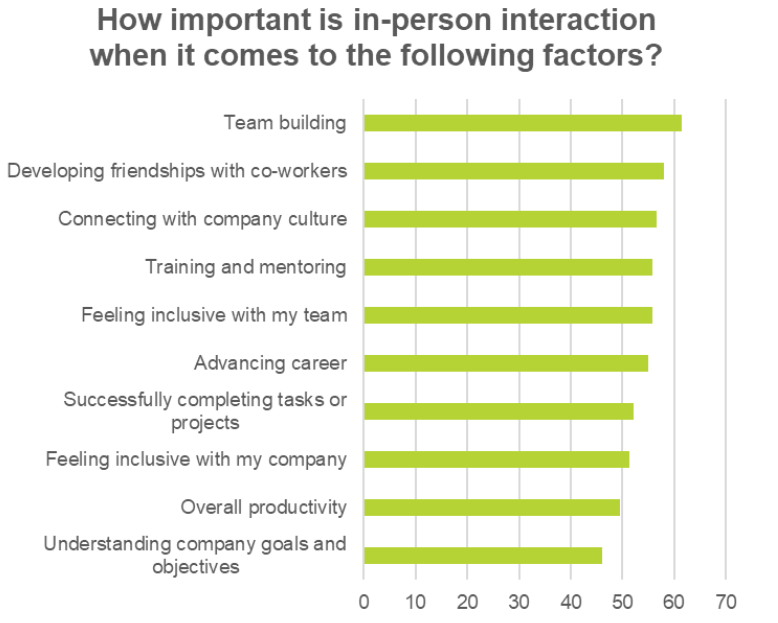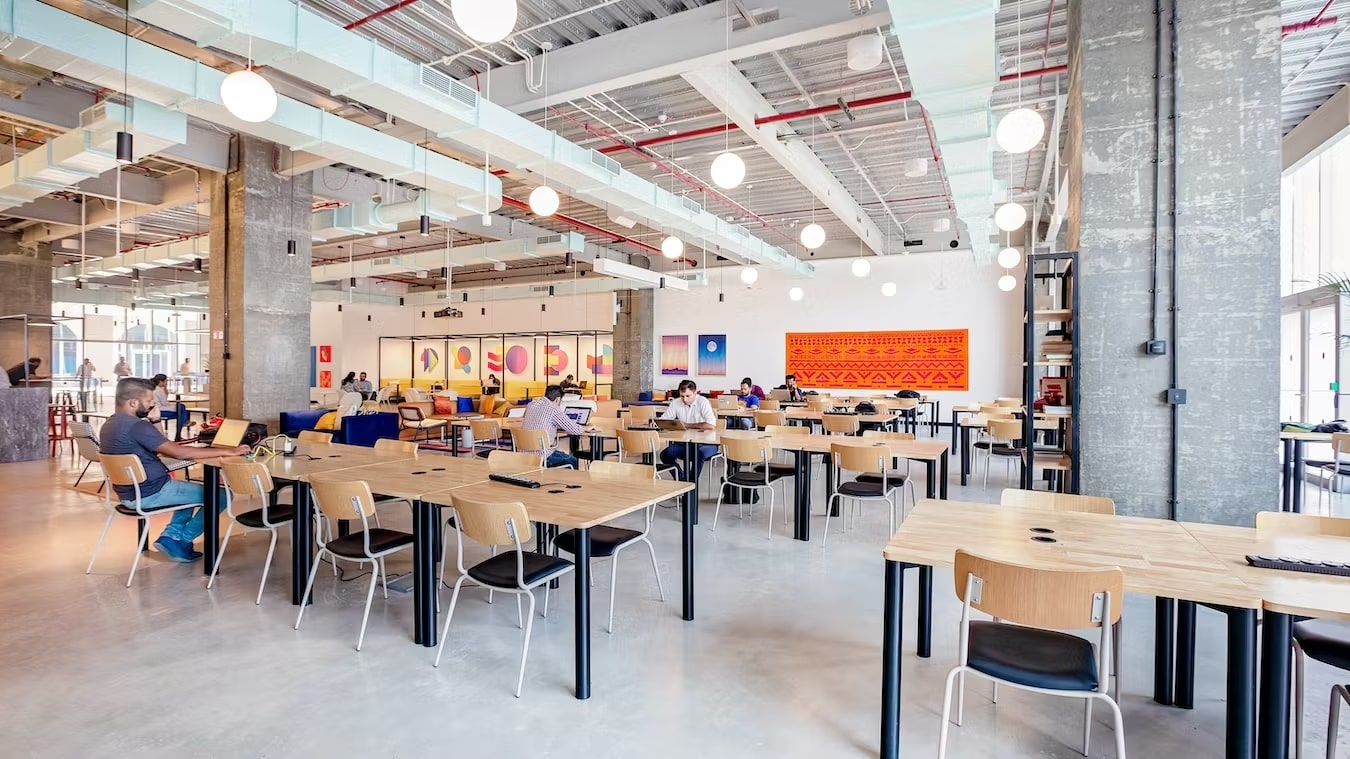With a focus on building friendships and connections, recent data highlights the paramount importance of interaction within immediate teams, especially among younger generations.
In the era of hybrid work, the importance of face-to-face interactions in the workplace cannot be overstated. Particularly for younger generations, these interpersonal connections play a pivotal role in fostering a sense of belonging and community within workplace settings. It's not just about productivity; it's about building friendships with colleagues and feeling connected to a company on a deeper level.
Recent data from The Instant Group underscores the significance of face-to-face interaction, with survey respondents overwhelmingly rating interaction with colleagues as the most important aspect of workplace connectivity. A staggering 91% of respondents emphasised the importance of interaction within their immediate team, compared to 80% for interactions within the wider company. This preference is even more pronounced among younger individuals under 30 years old, with 100% prioritising interaction within their team, highlighting the critical role of these relationships in fostering a sense of belonging.
Moreover, face-to-face interaction emerges as the most important factor for driving workplace belonging. This underscores the intrinsic human need for connection and community within the workplace. As individuals under 30 years old place the highest importance on building friendships and connections (73%), fostering a supportive and inclusive environment is becoming essential for retaining and engaging younger talent.

Demographic factors further shape the importance placed on face-to-face interaction. Employees who have been with a company for less than two years express a strong desire to feel included and integrated into the company culture (75%). Also, employees prioritise face-to-face interactions more than managers, with higher responses across the board, underscoring the grassroots nature of fostering workplace belonging.
Nurturing belonging through interaction
Interestingly, the environment in which individuals work also influences the importance placed on face-to-face interactions. Those in coworking spaces, where collaboration and community are central, place a higher importance on face-to-face interactions compared to those working from home. This disparity reflects the different priorities and dynamics present in these work environments, highlighting the nuanced nature of fostering workplace belonging.
As workplaces continue to evolve, creating opportunities for face-to-face interaction becomes essential for nurturing a sense of belonging and connectedness among employees. Whether through team-building activities, collaborative projects, or informal gatherings, these interactions contribute to a positive and supportive work culture where individuals feel valued and appreciated.
While digital tools and remote work arrangements offer flexibility and convenience, they cannot fully replace the depth of human connection fostered through face-to-face interactions. As businesses navigate a blend of remote and in-person work, fostering a sense of belonging becomes even more crucial.
By leveraging face-to-face interactions strategically, whether in physical office spaces, coworking hubs, or through carefully planned meetups, companies can bridge the gap between virtual and real-world connections. Embracing a hybrid approach that prioritises both digital collaboration and meaningful in-person encounters ensures that employees feel valued, connected, and engaged, no matter where they work.


